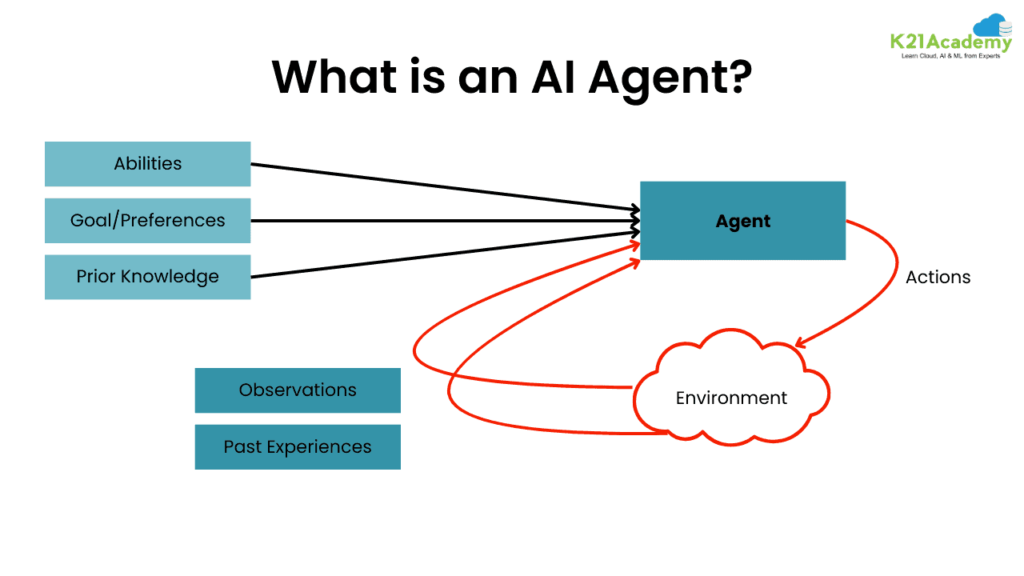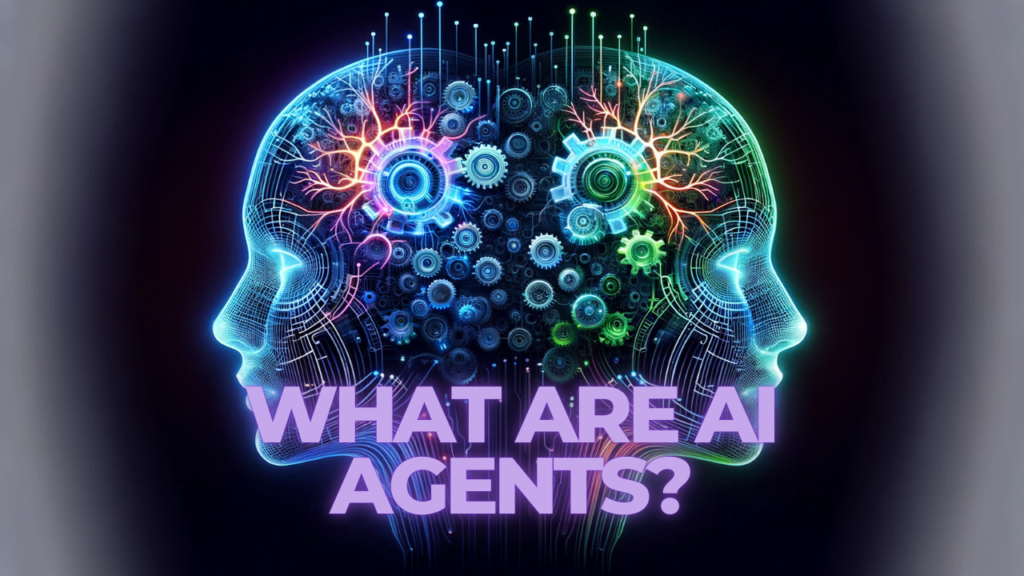Artificial intelligence (AI) is not a futuristic concept—it’s here, and it’s transforming the manner in which we stay, work, and have interaction with the era. At the coronary heart of this revolution are AI retailers, intelligent systems designed to carry out obligations autonomously, learn from their environments, and make choices with minimal human intervention. But what precisely are AI marketers, and the way do they work? In this weblog, we’ll dive deep into the arena of AI-powered dealers, discover their kinds, applications, and destiny potential, and answer all of your burning questions.
What Are AI Agents?
AI agents, additionally called sensible sellers in AI, are software program packages or systems that understand their environment, technique facts, and take movements to acquire precise dreams. Think of them as virtual assistants that could analyze statistics, analyze styles, and execute duties without constant human oversight.
For instance, while you ask Siri or Alexa to play your favorite tune, you’re interacting with an AI digital assistant—a sort of AI agent. These structures use gadget-studying agents and advanced algorithms to understand your request, seek their databases, and deliver the desired final results.
Types of AI Agents
Not all AI agents are created equal. They can be categorized based on their complexity and functionality. Here are the main types:
1. Simple Reflex Agents
These agents operate on a basic “if-then” rule system. They respond to specific inputs with predefined actions but lack the ability to learn or adapt. For instance, a thermostat that turns on the heater when the temperature drops is a simple reflex agent.
2. Model-Based Reflex Agents
These agents have an internal model of their environment, allowing them to handle more complex scenarios. They can consider past states and make decisions based on historical data.
3. Goal-Based Agents
As the name suggests, these agents are designed to achieve specific goals. They evaluate different actions and choose the one that brings them closer to their objective. Autonomous vehicles, for example, use goal-based agents to navigate roads safely.
4. Utility-Based Agents
These agents go a step further by not only achieving goals but also optimizing outcomes based on a utility function. They aim to maximize efficiency, satisfaction, or performance.
5. Learning Agents
Learning agents are the most advanced type. They can improve their performance over time by learning from their experiences. These agents are at the core of AI-driven automation and are widely used in industries like healthcare, finance, and customer service.

How Do AI Agents Work?
At their core, AI marketers depend on three key additives:
- Perception: They accumulate records from their surroundings of the usage of sensors, cameras, or user inputs.
- Processing: They examine the statistics, the use of algorithms, machine-gaining knowledge of fashions, and selection-making frameworks.
- Action: They execute obligations or provide outputs based on their evaluation.
For example, an AI agent in healthcare may perceive affected person signs and symptoms, system the facts to diagnose a condition, and endorse a treatment plan.
Applications of AI Agents
The versatility of AI agents makes them invaluable across various industries. Here are some real-life examples:
1. AI Agents in Business
From streamlining operations to enhancing customer experiences, AI agents are revolutionizing the business landscape. Chatbots, for instance, handle customer queries 24/7, reducing response times and improving satisfaction.
2. AI in Customer Service
Companies like Amazon and Netflix use AI-powered agents to personalize recommendations, predict customer preferences, and boost engagement.
3. AI Agents in Healthcare
In healthcare, AI agents assist in diagnosing diseases, predicting patient outcomes, and even performing surgeries. For example, IBM’s Watson Health uses AI to analyze medical data and suggest treatment options.
4. Autonomous AI Agents
Self-driving cars, drones, and robotic systems rely on autonomous AI agents to navigate and perform tasks without human intervention.
The Future of AI Agents
The potential of AI agents is limitless. As the era advances, we will expect:
- Smarter Virtual Assistants: Future AI virtual assistants will recognize context better, expect needs, and offer extra customized guides.
- Enhanced Automation: By increasing productivity and lowering charges, AI-pushed automation will revolutionize sectors including production, logistics, and agriculture.
- Ethical AI: Addressing ethical issues inclusive of prejudice, confidentiality, and responsibility may be essential as AI shops turn out to be extra incorporated into our day-to-day lives.
Challenges and Limitations
While AI agents offer immense benefits, they’re not without challenges. For instance:
- Bias in AI: If the information used to educate AI retailers is biased, their decisions may mirror the ones biased.
- Lack of Creativity: Unlike people, AI agents’ warfare with obligations requiring creativity or emotional intelligence.
- Security Risks: As AI dealers take care of touchy records, ensuring their security is paramount.
Conclusion
AI marketers are reshaping the sector as we know it, from simplifying everyday tasks to solving complex troubles. Whether you’re a tech lover, scholar, programmer, or without a doubt curious about AI, expertise in these shrewd structures is key to staying ahead in the digital age.
As we look to the future, one aspect is apparent: AI sellers will hold to adapt, presenting new opportunities and transforming industries in methods we are able to most effectively believe. So, the next time you interact with a chatbot, use a recommendation gadget, or surprise at a self-driving car, bear in mind—you’re witnessing the energy of AI dealers in motion.
What is your mind on AI agents? How do you see them impacting your lifestyles or industry? Share your insights within the remarks beneath!




